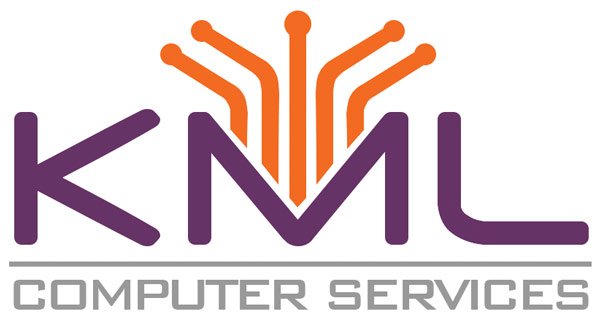
Starting a new business is a journey filled with excitement, challenges, and opportunities. One of the most critical aspects of establishing a successful start-up is ensuring that your technology infrastructure is robust, scalable, and secure. Building an agile IT environment can provide the necessary efficiency to grow and scale IT infrastructure as the business expands, capturing more opportunities and facilitating further scalability.
Engaging technology experts, like KML Computer Services, from the beginning can make a significant difference in how smoothly your business operations run and how well you are positioned for growth.
This comprehensive blog will explore the importance of involving IT professionals in various aspects of your start-up, from low voltage cabling and working with general contractors to setting up domains, licensing, system requirements, and future planning.
The Importance of Technology in Start-Ups
Technology is the backbone of modern businesses. Early stage organizations face unique challenges that require flexible and managed IT services. It enables efficiency, enhances communication, supports customer service, and drives innovation. For start-ups, leveraging the right technology can provide a competitive edge, streamline operations, and facilitate growth. However, the complexity of setting up and maintaining a robust IT infrastructure requires expertise that goes beyond basic technical knowledge. This is where involving technology experts becomes crucial.
Building a Solid IT Infrastructure with Low Voltage Cabling
Low-voltage cabling is the backbone of any modern business. A stable and secure network connection is crucial for efficient communication and data transfer. It involves the installation of cables that carry data, voice, and video signals throughout your office or building. Properly planned and installed low-voltage cabling ensures reliable and efficient communication and data transfer, which are crucial for daily operations. KML Computer Services specializes in designing and implementing low-voltage cabling systems that meet the specific needs of your business, ensuring that your network infrastructure is future-proof and scalable.
Importance of Low Voltage Cabling:
Reliable Communication
Reliable and efficient communication is essential for any business. Low voltage cabling ensures that your communication systems, including internet, phones, and video conferencing, work seamlessly without interruptions.
Scalability
As your business grows, your network needs will change. Properly installed low-voltage cabling allows for easy upgrades and expansions, ensuring that your infrastructure can grow with your business.
Cost-Effective
Investing in high-quality cabling from the beginning can save you money in the long run. It reduces the need for frequent repairs and replacements, minimizing downtime and associated costs.
Collaborating with Your General Contractor
When setting up a new office or building, it’s essential to have your IT team work closely with your general contractor. This collaboration ensures that your technological requirements are integrated into the overall design and construction process. From determining the number of data drops needed to planning the layout for firewalls, switches, wireless access points, and server rooms, having IT professionals involved from the beginning ensures seamless integration with existing IT staff and prevents costly modifications.

Benefits of Collaboration:
Integrated Design
Collaborating with your general contractor ensures that your IT infrastructure is integrated into the building’s design. This means that all necessary cabling, power sources, and equipment spaces are accounted for during the construction phase, avoiding costly modifications later.
Futureproofing
Working with IT professionals allows you to plan for future growth and technological advancements. This proactive approach ensures that your infrastructure can adapt to new technologies and increasing demands.
Efficiency
Early involvement of IT experts can streamline the construction process. They can provide insights on optimal locations for server rooms, data drops, and access points, making the installation process more efficient and reducing delays.
Setting Up Domains and Licensing
Domain Setup and Management
Your domain is your business’s online identity. Setting up a domain involves more than just choosing a name; it requires configuring DNS settings, securing the domain, and ensuring it is properly integrated with your email and web hosting services. KML Computer Services can guide you through the process, ensuring that your domain setup is secure, reliable, and optimized for your business needs.
Key Considerations for Domain Setup:
Domain Name Selection
Choosing the right domain name is crucial for your brand identity. It should be easy to remember, relevant to your business, and reflective of your brand.
DNS Configuration
Proper DNS configuration ensures that your domain resolves correctly and efficiently. This includes setting up A records, MX records, CNAME records, and more.
Security
Securing your domain with measures like SSL certificates and DNSSEC is essential for cyber security to protect against cyber threats and ensure secure communication with your customers.
Finding the perfect domain name at an affordable price is the crucial first step toward establishing a strong online presence. Domain name costs typically range from approximately $3.49 to $15 per year, with pricing variations depending on your preferred top-level domain (TLD) and the specific domain registrar you choose.
Microsoft 365 Licenses
Microsoft 365 is a powerful suite of productivity tools that can significantly enhance your business operations. Cloud computing solutions within Microsoft 365 can help businesses save money on IT costs and provide support for a wide range of technology platforms. However, setting up and managing licenses can be complex. IT experts like those at KML Computer Services can help you choose the right licenses for your team, ensuring that you have access to the necessary tools without overspending. They can also manage the setup and ongoing maintenance of these licenses, ensuring seamless updates and integration with your existing systems.
Advantages of Microsoft 365 and Cloud Computing:
Comprehensive Suite: Microsoft 365 includes a wide range of tools such as Word, Excel, PowerPoint, Outlook, Teams, and SharePoint. These tools facilitate communication, collaboration, and productivity.
Scalability: Microsoft 365 offers scalable licensing options, allowing you to add or remove licenses as your team grows or changes.
Security: Microsoft 365 includes built-in security features such as data encryption, multi-factor authentication, and advanced threat protection to keep your business data secure.
Understanding System Requirements
Assessing Program Requirements
Different programs and applications have varying system requirements. It’s essential to understand these requirements to ensure that your hardware and software are compatible and can run efficiently. KML Computer Services can help you assess the system requirements for the programs you plan to use, recommending the right hardware and software solutions to meet these needs.
Key Factors to Consider:
Hardware Compatibility: Ensuring that your hardware meets the minimum and recommended requirements for the software you plan to use is crucial for optimal performance.
Software Licensing: Understanding the licensing requirements for your software helps you stay compliant and avoid legal issues.
Futureproofing: Anticipating future software needs and ensuring that your hardware can support upgrades and new applications helps you stay ahead of technological advancements and save on capital costs.
Reviewing Office or Building Layout
The physical layout of your office or building plays a significant role in determining your technology setup. From the number of data drops and wireless access points to the placement of servers and networking equipment, a thorough review of your layout by IT professionals ensures that your technology infrastructure is optimized for performance and scalability.
Elements of a Thorough Review:
Network Design: Planning the layout of your network, including the placement of switches, routers, and access points, ensures optimal coverage and performance.
Equipment Placement: Strategically placing equipment such as servers, firewalls, and backup systems in secure, accessible locations reduces risks and improves efficiency.
Power and Cooling: Ensuring that your equipment has adequate power supply and cooling is essential for preventing outages and maintaining performance.
Planning for Future Growth and Expansion
Anticipating Future Needs
One of the key benefits of involving IT experts in your start-up is their ability to help you plan for future growth. This includes anticipating the need for additional hardware, software, and network capacity as your business expands. KML Computer Services can help you develop a technology roadmap that outlines your future needs and the steps required to meet them.
Key Considerations:
Scalability: Planning for scalability ensures that your infrastructure can grow with your business, avoiding the need for costly overhauls.
Budgeting: Developing a technology roadmap helps you budget for future technology investments, ensuring that you have the resources needed to support growth.
Risk Management: Anticipating potential risks and developing strategies to mitigate them helps ensure the continuity and stability of your operations.
Procurement and Purchasing
Choosing the right technology devices is essential for ensuring the smooth operation of your business. Rather than purchasing from online stores or large tech retailers, involving your IT department can help you acquire business-grade computers with appropriate warranties, reliable antivirus software, robust firewalls, and considerations for your phone and VoIP systems. IT experts can also assist with procurement, ensuring you obtain the best devices tailored to your needs at competitive prices.
Benefits of Professional Procurement:
Quality Assurance: IT professionals ensure that you purchase high-quality, reliable devices that meet your business needs and performance requirements.
Cost Savings: Leveraging the expertise of IT professionals can help you identify cost-effective solutions and negotiate better deals, saving you money in the long run.
Warranties and Support: IT experts ensure that your devices come with appropriate warranties and support agreements, providing peace of mind and reducing downtime.
Cybersecurity
In today’s digital age, cybersecurity is a top priority for businesses of all sizes. Professional IT firms recommend and review software dedicated to malware removal to protect against different types of malware. Cyber threats are constantly evolving, and start-ups are often targeted due to perceived vulnerabilities. Professional IT firms like KML Computer Services specialize in implementing robust cybersecurity protocols, including firewalls, antivirus software, and encryption, to protect your sensitive data. They also stay up to date with the latest security trends and threats, ensuring that your business is always protected.

Firewalls and Intrusion Detection
Effective cybersecurity starts with robust firewalls and intrusion detection systems. KML Computer Services recommends Fortinet devices for this critical role. Fortinet offers top-rated network and content security, as well as secure access products that share intelligence and work together to form a cooperative fabric.
Why Fortinet?
Fortinet’s unique security fabric combines Security Processors, an intuitive operating system, and applied threat intelligence. This combination delivers proven security, exceptional performance, and enhanced visibility and control while simplifying administration. Here’s a breakdown of what Fortinet offers:
FortiGate: The Flagship Enterprise Firewall Platform: FortiGate is Fortinet’s flagship enterprise firewall platform, available in a wide range of sizes and form factors to suit any environment. It provides a broad array of next-generation security and networking functions. By deploying FortiGate, you can achieve a simplified, end-to-end security infrastructure covering:
Network Security: FortiGate ensures your network is protected against a wide array of 4threats, maintaining the integrity and availability of your business operations.
Multi-Cloud Security: Fortinet extends its security fabric to protect assets across multiple cloud environments, ensuring consistent security policies and protection no matter where your data resides.
Web Application Security: Protect your web applications from attacks and data breaches with FortiGate’s advanced security features, safeguarding your business’s online presence.
Email Security: Fortinet’s solutions provide robust protection against email-based threats, such as phishing, malware, and spam, ensuring secure communication channels.
Advanced Threat Protection: FortiGate offers comprehensive threat protection capabilities, including intrusion prevention, anti-malware, and advanced threat intelligence, to defend against sophisticated cyber threats.
Secure Unified Access: FortiGate enables secure and seamless access for all users, whether they are on-site or remote, ensuring reliable and secure connectivity.
Endpoint Security: Fortinet extends its protection to endpoints, ensuring that devices accessing your network are secure and compliant with your security policies.
Management and Analytics: Fortinet provides powerful management and analytics tools, giving you better visibility and control over your security infrastructure, helping you to quickly identify and respond to threats.
By leveraging Fortinet’s comprehensive security solutions, KML Computer Services ensures that your business is protected against a wide range of cyber threats, enabling you to focus on your core operations with peace of mind.
Antivirus, Anti-Malware, and Malware Removal
Antivirus and anti-malware software are crucial components of a robust cybersecurity strategy. Microsoft Defender, the built-in antivirus utility in Windows, has gained more responsibilities with updates in recent years. Regularly updating this software ensures that your systems are protected from the latest malicious attacks and infections.
At KML Computer Services, we recommend and use top-rated antivirus solutions like Malwarebytes and Avast. These tools are essential for safeguarding your business’s data and systems from various cyber threats.
Why Antivirus and Anti-Malware are Essential:
Protection Against Viruses: Antivirus software identifies and removes viruses before they can cause harm to your systems.
Defense Against Malware: Anti-malware tools detect and eliminate malicious software, including ransomware, spyware, and adware, that can compromise your security and privacy.
Regular Updates: Keeping your antivirus and anti-malware software up to date ensures protection against the latest threats, as new malware variants are constantly being developed.
Real-Time Scanning: Modern antivirus and anti-malware programs offer real-time scanning, continuously monitoring your systems for potential threats and taking immediate action to neutralize them.
Comprehensive Coverage: These tools provide comprehensive protection across various platforms and devices, ensuring that all aspects of your IT infrastructure are secure.
Recommended Solutions:
ThreatDown powered by Malwarebytes: Known for its robust detection and removal capabilities, Malwarebytes excels in identifying and eliminating advanced malware that traditional antivirus programs might miss.
According to ThreatDown’s June report, 358 victims were posted on ransomware leak sites, marking the second-lowest monthly total of the year. This period also saw significant cybersecurity incidents, including LockBit’s attack on the Federal Reserve and the emergence of ‘The Hateful Eight’ ransomware gangs.
Encryption
Encrypting sensitive data is a critical component of cybersecurity, ensuring that even if data is intercepted, it remains unreadable to unauthorized parties. Programs like Microsoft 365 and 1Password provide encryption capabilities for securing your data. At KML Computer Services, we have several clients utilizing Zix, an enterprise email encryption, threat protection, and archiving solution that enhances productivity, security, and compliance.
Why Encryption is Essential:
Data Protection: Encryption ensures that sensitive information is secure and unreadable to unauthorized users, protecting it from cyber threats and data breaches.
Compliance: Encrypting data helps businesses meet regulatory requirements and industry standards, ensuring compliance with data protection laws.
Recommended Solutions:
Microsoft 365: Provides built-in encryption features to protect emails and documents, ensuring that your sensitive information is secure.
1Password: 1Password encrypts passwords and sensitive data, providing a secure way to manage and store credentials.
Zix: Zix offers comprehensive email encryption, threat protection, and archiving solutions. ZixMail, an on-premise email encryption platform, can be installed on various email systems, Windows devices, and web-based platforms. It encrypts and decrypts attachments and other confidential information in emails and automatically distributes and retrieves public encryption keys, ensuring secure communication.
By leveraging these encryption solutions, KML Computer Services helps businesses safeguard their sensitive data, enhance security, and maintain compliance with industry regulations.
Ensuring Compliance with Industry Standards
Depending on your industry, you may need to comply with specific regulations, such as HIPAA for healthcare or PCI DSS for payment processing. IT experts can help you navigate these complex requirements, ensuring that your systems and processes are compliant. This not only protects your business from legal and financial penalties but also builds trust with your customers.
Importance of Compliance:
Legal Protection
Compliance with industry standards protects your business from legal issues and potential fines.
Customer Trust
Demonstrating compliance with regulations builds trust with your customers, showing that you take their privacy and security seriously.
Operational Efficiency
Implementing compliant processes often leads to improved operational efficiency and streamlined workflows.
What would happen if you lost all of your data?
You could incur:
- HIPAA fines
- Breach notification expenses
- Claims for damages
- Cost of compliance with other state and federal regulations
- Reputation damage
Did you know that a Ransomware attack is considered a HIPAA breach? Since KML has years of experience in the healthcare industry, we are HIPAA certified and specialize in keeping medical and dental offices educated, safe and up running efficiently.
At KML Computer Services, we offer:
- Cybersecurity Monitoring and Education
- Email Encryption
- Management of your technology
- Security Cameras
- HIPAA compliant and military grade encryption cloud storage and file sharing
- PCI Compliance Consulting
Enhancing Operational Efficiency
Optimizing Network Performance
A well-designed network is essential for the efficient operation of your business. IT professionals can optimize your network to ensure high performance and reliability, minimizing downtime and disruptions. This includes setting up wireless access points, configuring switches and routers, and implementing network monitoring tools to detect and resolve issues before they impact your business.
Strategies for Network Optimization:
Proper Configuration: Ensuring that all network devices are properly configured reduces latency, improves speed, and enhances overall performance.
Regular Monitoring: Continuous monitoring of network performance helps identify and resolve issues proactively, minimizing downtime.
Upgrades and Maintenance: Regularly upgrading hardware and software and performing routine maintenance ensures that your network remains efficient and reliable.
Implementing VoIP Systems
Voice over Internet Protocol (VoIP) systems offer significant advantages over traditional phone systems, including cost savings and enhanced features. However, setting up and managing a VoIP system requires specialized knowledge. IT experts can help you choose the right VoIP solution for your business, configure the system for optimal performance, and provide ongoing support to ensure seamless communication.
Advantages of VoIP:
Cost Savings: VoIP systems often cost less than traditional phone systems, reducing your communication expenses.
Enhanced Features: VoIP systems offer features such as call forwarding, voicemail to email, and video conferencing, enhancing your communication capabilities.
Scalability: VoIP systems can easily scale your business, allowing you to add or remove lines as needed without significant investment.
Supporting Remote Work

Securing Remote Access:
The shift towards remote work has introduced new challenges in securing data and systems. IT professionals can implement secure remote access protocols, ensuring that your employees can work from anywhere without compromising security. This includes setting up virtual private networks (VPNs), multi-factor authentication, and remote monitoring tools to protect your business data.
Key Components of Secure Remote Access:
VPNs: Virtual private networks (VPNs) provide secure, encrypted connections for remote workers, protecting data as it travels between their devices and your network.
Multi-Factor Authentication: Implementing multi-factor authentication (MFA) adds an extra layer of security, requiring users to provide multiple forms of verification before accessing sensitive data.
Remote Monitoring: Monitoring remote devices and connections helps detect and respond to security threats in real-time, ensuring ongoing protection.
Managing Remote Devices
Managing and securing devices used by remote employees is crucial for maintaining security and productivity. IT experts can deploy device management solutions that allow you to monitor and control remote devices, ensuring they are secure and up-to-date with the latest software and security patches.
Benefits of Device Management:
Security: Ensuring that remote devices are secure and up-to-date with the latest patches reduces the risk of cyber-attacks and data breaches.
Productivity: Monitoring and managing remote devices helps ensure that they are functioning properly and that employees have the tools they need to work efficiently.
Compliance: Device management solutions can help ensure that remote devices comply with industry regulations and company policies, protecting your business from legal and regulatory issues.
Disaster Recovery and Business Continuity
Importance of Backups
Data loss can have devastating consequences for a business. Regular backups are essential to ensure that your critical data, such as word processing documents, electronic spreadsheets, databases, financial files, human resources files, and accounts receivable/payable files, is protected and can be recovered in the event of a disaster. IT professionals can implement backup solutions that store your data both locally and, in the cloud, providing multiple layers of protection.
Types of Backups:
Full Backups: Full backups involve copying all data and files from your systems to a backup location. While comprehensive, they can be time-consuming and resource-intensive.
Incremental Backups: Incremental backups only copy data that has changed since the last backup, making them faster and more efficient but requiring a full backup to restore.
Differential Backups: Differential backups copy all data that has changed since the last full backup, providing a balance between speed and comprehensiveness.
Developing a Disaster Recovery Plan
A disaster recovery plan outlines the steps your business will take to recover from a catastrophic event, such as a cyber-attack, natural disaster, or hardware failure. IT experts can help you develop a comprehensive disaster recovery plan that ensures your business can quickly resume operations, minimizing downtime and financial losses.
Key Components of a Disaster Recovery Plan:
Risk Assessment: Identifying potential risks and vulnerabilities helps you develop strategies to mitigate them and prepare for recovery.
Recovery Objectives: Establishing recovery time objectives (RTOs) and recovery point objectives (RPOs) ensures that you can restore critical systems and data within acceptable timeframes.
Testing and Maintenance: Regularly testing and updating your disaster recovery plan ensures that it remains effective and that your team is prepared to execute it when needed.
Continuous Support and Maintenance
Ongoing Monitoring and Maintenance
Even after your start-up is up and running, ongoing support and maintenance are essential to ensure that your technology infrastructure remains reliable and secure. IT professionals can provide continuous monitoring and maintenance services, detecting and resolving issues before they impact your business. This includes regular updates, security patches, and performance optimizations to keep your systems running smoothly.
Benefits of Ongoing Support:
Proactive Issue Resolution: Continuous monitoring allows IT professionals to identify and resolve issues before they cause significant disruptions, minimizing downtime and maintaining productivity.
Security: Regularly updating and patching systems ensures that they remain secure against evolving threats, protecting your business data and operations.
Performance Optimization: Ongoing maintenance and performance optimizations help ensure that your systems remain efficient and reliable, supporting your business operations.
Regular Client Meetings
Regular meetings with your IT provider allow you to discuss any recurring issues, plan for future technology needs, and ensure that your systems are aligned with your business goals. KML Computer Services meets with clients regularly to provide proactive support and help plan for technology growth.
Advantages of Regular Meetings:
Proactive Planning: Regular meetings allow you to proactively plan for future technological needs, ensuring that your infrastructure can support your business goals and growth.
Issue Resolution: Discussing recurring issues with your IT provider helps ensure that they are addressed and resolved, maintaining smooth operations.
Alignment: Regular communication helps ensure that your technology strategy aligns with your business objectives, maximizing the value of your IT investments.
Future-Proof Your Start-Up with IT Experts
In conclusion, involving technology experts like KML Computer Services from the beginning of your start-up journey is essential for building a robust, secure, and scalable technology infrastructure.
From low-voltage cabling and domain setup to cybersecurity and disaster recovery, IT professionals provide a comprehensive range of support services needed to ensure your business’s success. By planning for future growth, optimizing operational efficiency, and providing continuous support, KML Computer Services helps you focus on what you do best – running your business.
Contact us today to learn how we can support your start-up’s technology needs and set you up for long-term success.
Sidney Rossi with over 25 years of software sales, including hardware and software, is not only seen as a leader in the technology industry, but a proven performer.

